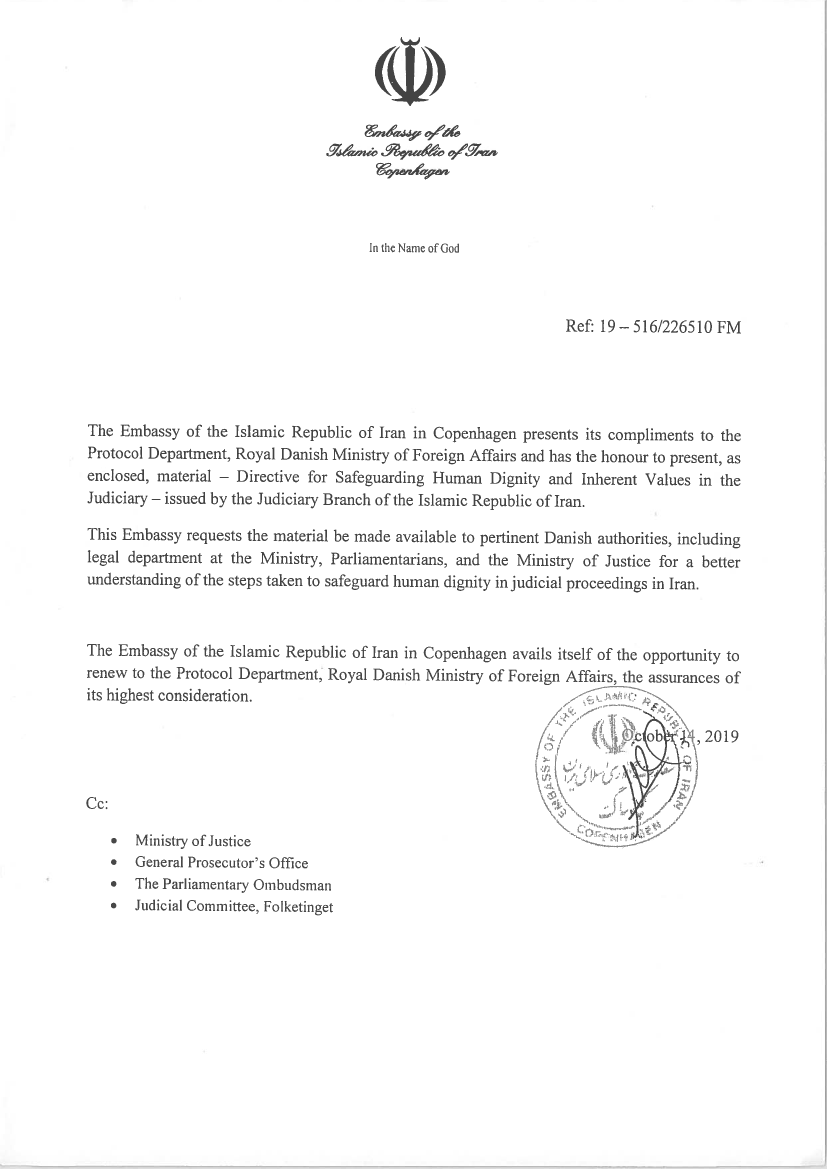
()
€,
_c
C/
b the Name of God
Ref: 19—516/226510 FM
The Embassy of the Islarnic Republic of Iran in Copenhagen presents its compliments to the
Protocol Department, Royal Danish Ministry of Foreign Affairs
and has the honour to present, as
enciosed, material
Directive for Safeguarding Human Dignity and Inherent Values in the
Judiciary issued by the Judiciary Branch of the Islamic Republic of Iran.
—
—
This Embassy requests the material be made available to pertinent Danish authorities, inciuding
legal department at the Ministry, Parliarnentarians.
and
the Ministry of Justice for a better
understanding of the steps taken to safeguard human dignity injudicial proceedings
iii
Iran.
The Embassy of the Islarnic Republic of Iran
in
Copenhagen avails itself of the opportunity to
renew to the Protocol Department, Royal Danish Ministry of Foreign
Affairs,
the assurances of
its highest consideration
/
/
1
2019
Cc:
•
•
•
•
Ministry of Justice
General Prosecutor’s Office
The Parliarnentary Ombudsman
Judicial Cornrnittee. Folketinget